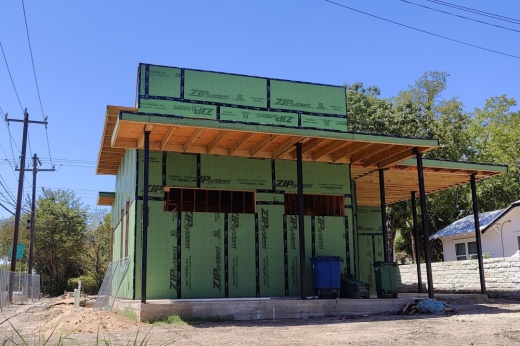The context
Fixing issues with Austin's development services is a goal that's remained in the crosshairs of city officials for years, but dissatisfaction with the site plan review process remains high.
Critics including developers and other frequent users of the permitting system say overcomplexities and delays on the city's end can frequently cause challenges for various building projects and lead to high construction costs that are out of line with comparable cities.
Mayor Kirk Watson, who campaigned last year on improving government services such as permitting, brought McKinsey on early in his term to take a look at Austin's site plan reviews—a process he labeled a "mess" in a recent newsletter.
"Over the years, there have been a lot of audits and reports on the development review process, but nothing lasting seemed to come of them. This one is different," Watson wrote. "McKinsey started at the most fundamental level of documenting each laborious step in the review process, which shockingly had never been in any of those past efforts."
The findings
The McKinsey review lasted several months, and the firm's report on the topic was publicly published ahead of an August City Council discussion about the findings.
McKinsey covered many aspects of Austin's site plan review process, including how intensive and time-consuming the work is overall.
Analysts found that a typical review includes nearly 1,500 total steps from beginning to end, involving dozens of city staff members and taking up hundreds or thousands of hours of their time. Consultants said the system is made up of "inconsistent processes, multiple, sometimes outdated technologies, and ad-hoc cross-departmental coordination."

While extended development reviews are not unique to Austin, some of the complexities faced along the way are. McKinsey consultants said another issue that contributes to lengthy reviews and elevated costs is the extent of the city's land development code.
While city officials have prioritized updating and streamlining that development framework, both applicants and city development staff must still pore through its roughly 1,800 regulations spread across hundreds of pages to ensure compliance with various rules.
Nearly 180 city customers polled about their experiences scored their satisfaction with the process at an average of just 3 out of 10. None of the individual departments involved in the process received favorable grades for any aspects of their work.

“They’re caught in this process that needs to be adapted," Erdmann said.
The big picture
While permitting reviews lead to irritation among those involved, the system can also affect Austinites overall. Project delays drive up costs that end up being felt by residents who pay higher rents or purchase prices, while also keeping homes and apartments from entering the market sooner.
McKinsey found that in the worst cases, delays on the city's end can cost applicants up to $10,000 per month in extra carrying costs for single-family redevelopments and nearly $550,000 per month for multifamily projects.Council Member Vanessa Fuentes said fixes to the system are a priority for her given the number of times she's heard about residents being priced out of the city or finding themselves unable to become a homeowner in Austin.
“As we strive to make Austin an affordable community for everyone and to ensure that we’re keeping families in their homes, we have to ensure that this part of the process when it comes to getting homes—affordable homes—built, is quicker and it’s done efficiently and it’s done in a transparent manner," she said.
Council Member Natasha Harper-Madison also highlighted how Austin's "punitive and detrimental" system can end up hurting small businesses, potentially leading to operational hits, such as lost revenue and employee layoffs.
“It’s a mess, and they are right to be mad at us," she said.
Harper-Madison cited the recent situation reported at East Austin's Nixta Taqueria as an example of such problems. An electrical issue at the eatery sparked ongoing permitting challenges for the business that led to its ongoing closure.
What's next
While McKinsey didn't charge the city for its initial review, officials could vote Aug. 31 to spend $2.5 million to keep the firm around for six more months to help implement the many fixes proposed in the new report.
“If you look at the deliverables that are in that contract, it is, ‘Okay, you have brought to us a really robust analysis of what our problems are in the site planning process. Now, we’re hiring you to implement what we need to do to fix all those things,'" Watson said.
Those include updates related to internal management and customer relations, reporting on how reviews are working, and bringing in new technology to streamline the process.
The McKinsey contract wouldn't cover the full list of updates proposed for Austin's permitting reviews; all recommendations will take until at least 2025 to roll out or fully come to scale.

Diving in deeper
Austin is also in the process of responding to new state laws aimed at reducing strains that may be experienced if cities' development services are lagging.
House Bill 14, effective Sept. 1, allows planning and permitting applicants to have their relevant development documents inspected by a third party if a city review is taking too long. A separate measure effective in September, House Bill 3699, will adjust how local governments handle reviews and appeals through the subdivision process.
Austin officials are set to consider a pair of land development code amendments in the near future to get the city into compliance with the new laws. Travis County commissioners were also posted to discuss the topic Aug. 29.





